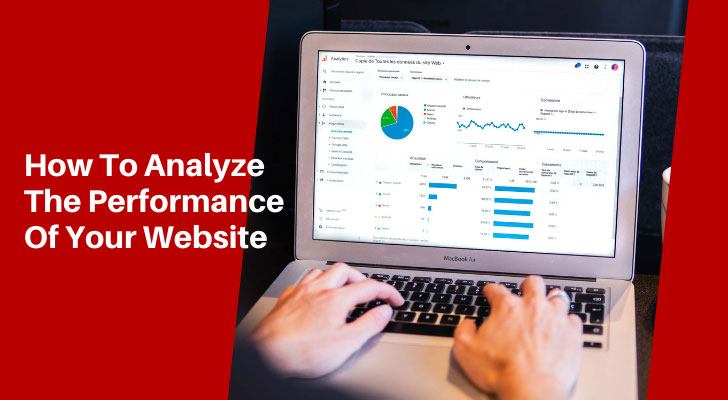One of the top reasons for a website’s failure is the lack of continuous assessment after it has been launched. Once a website has been created and made accessible to visitors, many site owners focus on adding new content such as blog articles and new landing pages but half-neglect the maintenance side of it, especially evaluating whether the site is achieving the desired results or not.
This may happen because some business owners think that it's not worth the time and effort for the process. The truth is, it’s easy to analyze your website’s performance when you have a website audit checklist to guide you through the process.
Here are some measures you can take to assess your website’s performance:

Check Search Engine Visibility
There are more ways of measuring the website's performance. One way is to check your site’s ranking with popular search engines; Google, Yahoo, and Bing.
Below are some of the factors that affect your site’s search engine rankings:
- If you want to measure a website's performance by checking the website’s search engine visibility, you should not forget about the importance of content. Writing blogs is one of the essential elements of a website's success. If your content is informative, unique, and useful, your site will have good chances of getting high rankings in search engines.
- You should also consider the title of your posts and pages. You should write a title relevant to what you’re talking about. This is because search engines consider the title as the most essential part of a site's content.
- Another important aspect is the meta description tags. These tags will allow search engines to find your site. If your site's description contains relevant keywords, it will appear higher than other sites. That is why you need to make sure that you include relevant keywords in the content, title, and meta tags description of your web pages so search engines can find your site.
- In some cases, the page speed can be one of the most significant determining factors for your site’s ranking. You want your site to be viewed as quickly as possible, so you want to make sure your page loads quickly. If you have an extremely slow page that takes a long time to load, then search engines won’t not rank your site high on their list, and you'll get fewer visitors.
To optimize your page speed, check for errors in your code and other problems that could be slowing down your page. You can use Google PageSpeed Insights to evaluate it, and an optimization tool to help you find these files and fix them.
Use Google Analytics

If you’re looking to improve your website’s performance, one of the highly recommended tools you should have on hand is Google Analytics. It’s is a powerful but essential tool that can help you understand how to improve your website and make it perform better. Even if you’re only running a small website, it's still worth looking into if you want to monetize your site.
Check out some of valuable data you can uncover when you’re using Google Analytics:
- Google Analytics can give you the statistics for all the aspects of your website in one place. You can quickly look at how many users log in for the past period or real time, how many pages they're visiting, how they arrived and how they left the site.
- You can also see the information about your visitors including where they came from, which posts or pages they saw, what they searched for, and how much time it took them to reach your site. For example, if someone came via Google search and then stayed for an extended period, you can see the amount of time they spent there.
- You can also see what type of keywords they were using on their searches, their age, gender, income level, the number of people they were following, where they came from, and many more essential details about your website’s visitors.
- With Google Analytics, you can see the traffic that comes to your site. This is useful because you can see the visitors' country of origin. You can find out who referred them to your site and which adverts they clicked on as well.
Another important aspect of Google Analytics is that it allows you to set up your own reports to monitor your website’s performance. You can create reports that track the activity on all of your pages at once or create reports that only track particular aspects of your website. This way, you can get a real-time view of your site's performance. This tool under "Behavior" > "Site Content" > "Content Drilldown", also allows you to determine which pages have the most visits, which means significant effect on your revenue.
KPIs
Key performance indicators or KPIs are metrics used to measure the aspects that significantly affect your website goals and your brand’s bottom line.
Here are some of the common KPIs that you’ll need to evaluate if you want to know whether your website is performing well:
- Conversion Rate: Conversion doesn’t just refer to sales. It can also mean how many visitors you get to sign up for your subscriber list or download an e-book or guide. Your conversion rate will help you assess whether the marketing methods you’re using are actually working.
- Customer Satisfaction: This is a difficult metric to track because it’s quite subjective. Aside from Google Analytics, you’ll need tools like survey forms to better understand how visitors feel about your site.
- Traffic Sources: Context plays a key role when it comes to your traffic sources. You want to know which channels your visitors are coming from and which pages are attracting them. By tracking this, you can get to know potential customers and better direct your marketing methods to cater to their preferences and behaviors.
Conclusion
Checking your website’s performance is essential so you can identify the issues surrounding your website. When you know what problems are on your website, you know what steps to take. That way, you can avoid wasting efforts that may not be the answer to your website's problems. To sum it up... 1. You can use analytics tools to check your website's performance. 2. Check search engine visibility including the page speed to determine if your website is loading fast because the page speed can affect your website ranking, and 3. Check your KPI's.
